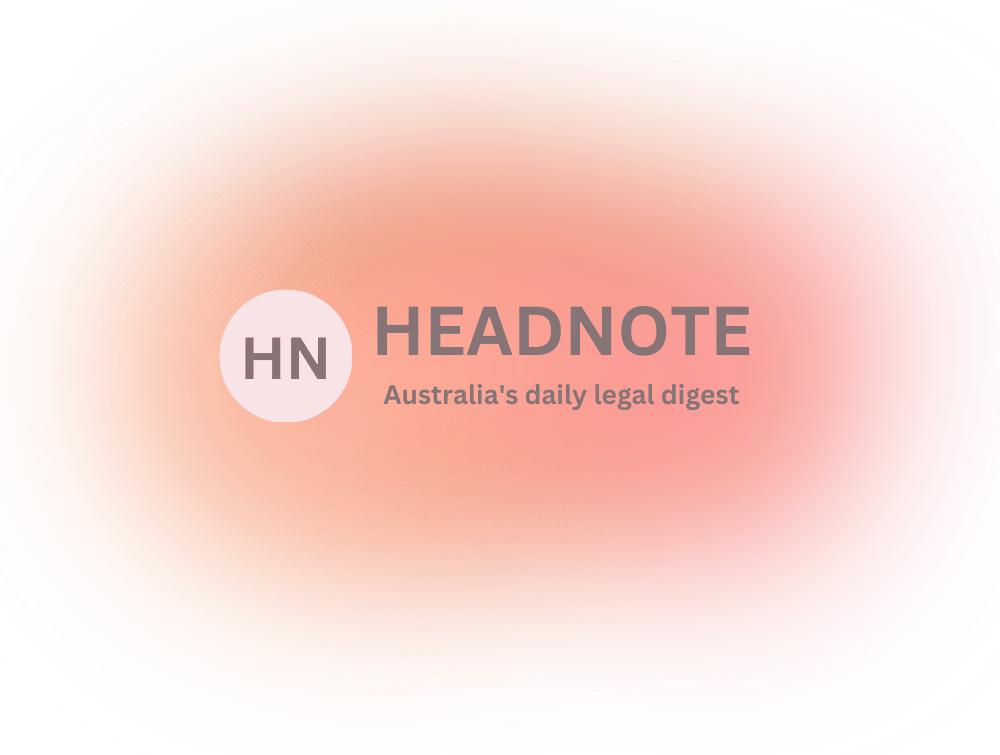
Was this email forwarded to you?
Sign up for our free daily email newsletter at headnote.com.au
Daily wrap
A former judge of the Federal Court of Australia is at the centre of an investigation led by an ex Inspector-General of Intelligence and Security.
Editor’s picks
“Politicians with white-collar backgrounds dominate Australia’s parliament, with lawyers and barristers comprising about one in five MPs in the federal Labor, Greens, National and Liberal parties”
[126] Lastly, the accused addressed Ms Stone’s conclusions providing extremely strong support for the accused as the contributor to the mixed DNA profile. The accused noted that there is no evidence that established [the accused’s brother]’s age. The accused submitted that the striking similarity in their physical appearances, as demonstrated in the BWC footage, gives rise to the possibility that they are identical twin brothers. The accused submitted that this is fatal to the DNA evidence relied upon by the prosecution as the possibility of the accused and [the accused’s brother] having identical DNA has not been excluded.
[183] I have determined that the evidence does not exclude the reasonable possibility that the accused’s brother is his identical twin…
[185] The prosecution has failed to exclude a reasonable hypothesis consistent with innocence, that being that the accused’s brother was the offender. Accordingly, the accused must be acquitted on all counts on the indictment and on the transferred, related charges.
[4] There has been some differences of judicial opinion as to the circumstances in which adverse publicity should be viewed as an extra curial punishment. However, as identified by Beech-Jones J (as his Honour then was) in R v Obeid (No 12) [2016] NSWSC 1815 at [102], the position appears to be that adverse media reporting should only be considered extra curial punishment when it reaches a level that it has some impact on the physical or psychological wellbeing of the offender.
[5] That does not mean that it is only necessary for an offender to present evidence of the psychological effects of the media reporting for the reporting to be considered a form of extra curial punishment. In every case, it must be necessary to consider the level and content of reporting and have regard to the nature of the offending and the public interest in the offending. A sentencing judge would thus need to consider both the nature and extent of the reporting and the impact on the offender.
[6] In this case, the media interest and reporting was extensive including in the nightly news bulletins and across the print media. That was no doubt a reflection of the applicant’s role as a Deputy Principal at a High School and the community’s justifiable concerns. However, there is nothing in the psychiatric evidence relied upon by the applicant which might lead to the conclusion that the fact of the extensive reporting had any particular impact on the applicant.
Like our free newsletter? The best way to support us is to tell your colleagues and friends about our newsletter.
We welcome your feedback, which you can send to [email protected]